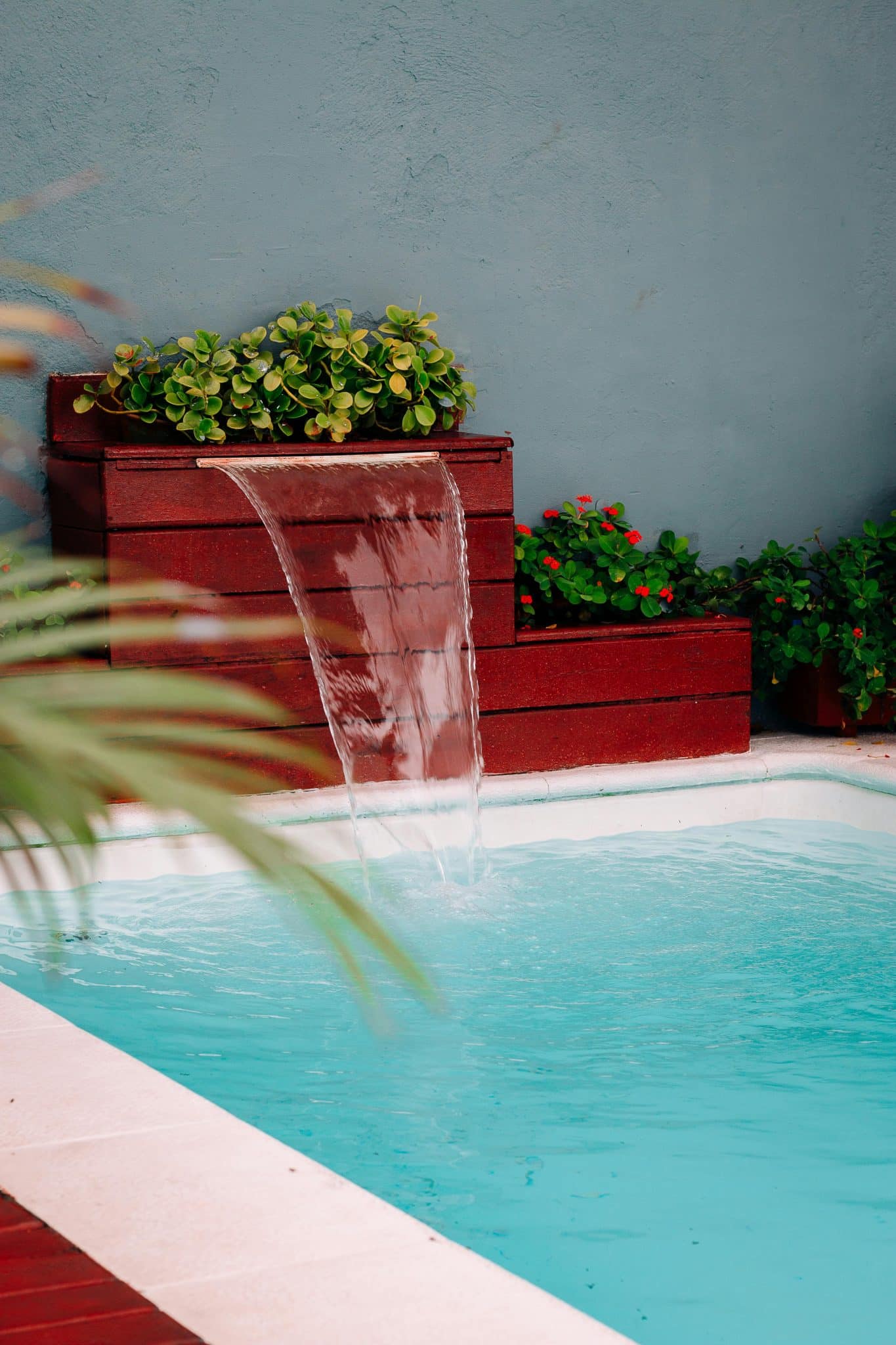Seeing the brick pavers you’ve invested into get ruined by oil stains or other unwanted marks truly can be upsetting. After all, they’re meant to enhance your outdoor space’s beauty, not mar it instead. However, be it a car leak or a BBQ party mishap, the situation is not hopeless. Let’s break down why and how using vinegar to remove oil stains from brick pavers is easier and more efficient than it might initially seem.
Vinegar vs Chemical Cleaners
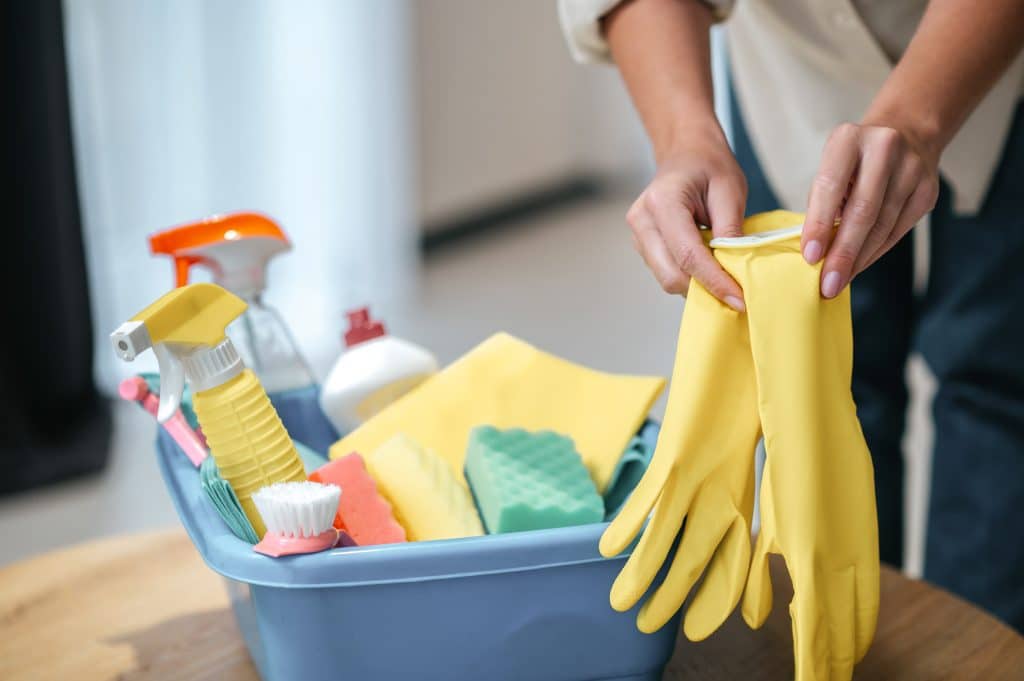
Why choose vinegar for cleaning brick pavers when chemical cleaners exist? It’s true that some might not consider this homemade solution to be the best oil remover for block paving. In reality, vinegar has numerous of advantages when compared to conventional cleaners:
- Gentle approach
Some chemical cleaners can be too harsh on due to its synthetic composition. It can entail serious surface damage or discoloration. Vinegar, on the other hand, is gentle enough to wash the grease or oil off your interlock without harming it.
- Eco-friendly option
Vinegar is a natural non-toxic substance, perfectly safe for the environment. In the meantime, chemical cleaners often contain harmful ingredients that can damage your plants and soil.
- Healthier for you and your family
When using vinegar you’re not exposed to harmful fumes and residues left behind by chemical cleaners. It makes vinegar a safer option for any household, but especially those with children and pets.
- Inexpensive solution
Vinegar is quite cheap and probably is already waiting to be used somewhere in the depths of one of your cabinets. Chemical cleaners can be costly though, especially if you need to buy them frequently for large areas.
This solution not only removes stains from paving stones but also helps control moss and weed growth. By controlling it naturally, you preserve the integrity of your interlocks and ensure that your patio, driveway, or walkway remains clean, attractive, and easy to maintain.
How to Clean Oil Stains from Brick Pavers with Vinegar
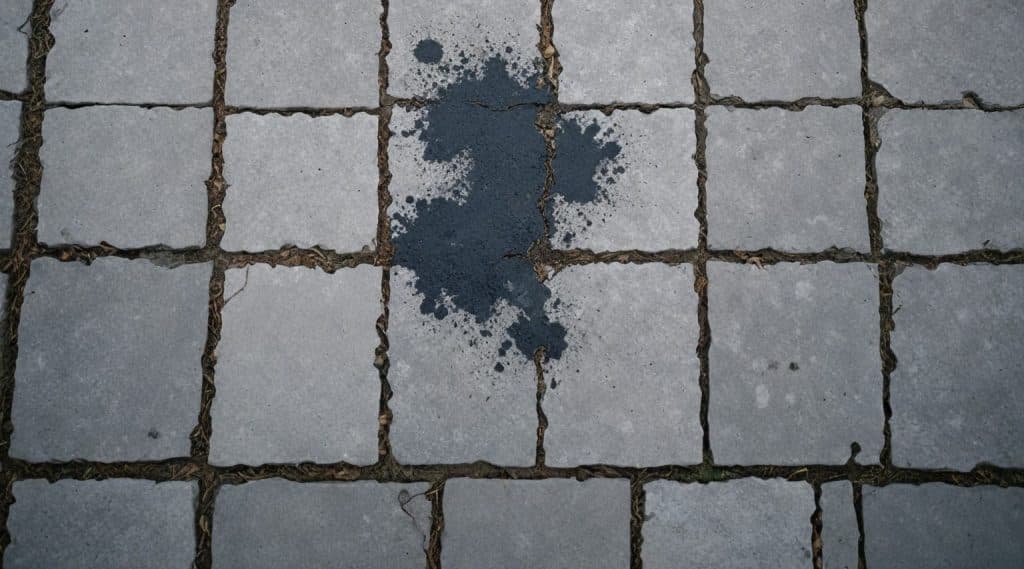
Using vinegar to remove oil stains from brick pavers is not only effective but also quite simple. Here’s a comprehensive guide to help you get the job done.
Step #1. Start by gathering all the supplies you will need, including:
- White vinegar
- A stiff scrub brush
- Warm water
- A spray bottle or bucket
- Baking soda or cornstarch
Step #2. There’s no need for any special preparation for the area you’ll be working on. However, sweeping the area to remove any dirt or debris is a quick but important step.
Step #3. Sprinkle a generous amount of baking soda or cornstarch over the stain. These materials will help absorb excess oil from the surface of the pavers. Leave it for about 15–30 minutes.
Step #4. After the wait is over, use your brush to sweep away the baking soda or cornstarch. You should see mild results already, but the vinegar will take care of the rest.
Step #5. Mix white vinegar with water in a 1:1 proportion and put the mixture directly onto the stain. Make sure you’re using white vinegar, seeing as other vinegar types can damage the surface. Leave the vinegar to sit for 15–20 minutes. The vinegar’s acidity will dissolve the oil, making it easier to remove.
Step #6. Use the brush to scrub the oil-stained area in circular motions. Add more vinegar if necessary, and resume scrubbing until the stain begins to lift.
Step #7. Once you’re satisfied with the results, splash the walkway with warm water to wash away the vinegar and any remaining oil residue.
Usually this is more than enough to remove oil stains from pavers. However, if the spot won’t come off, you might need to go through the steps once again. In especially difficult cases you might need to try out other methods or even replace the paver.
Mistakes to Avoid When Cleaning Brick Pavers
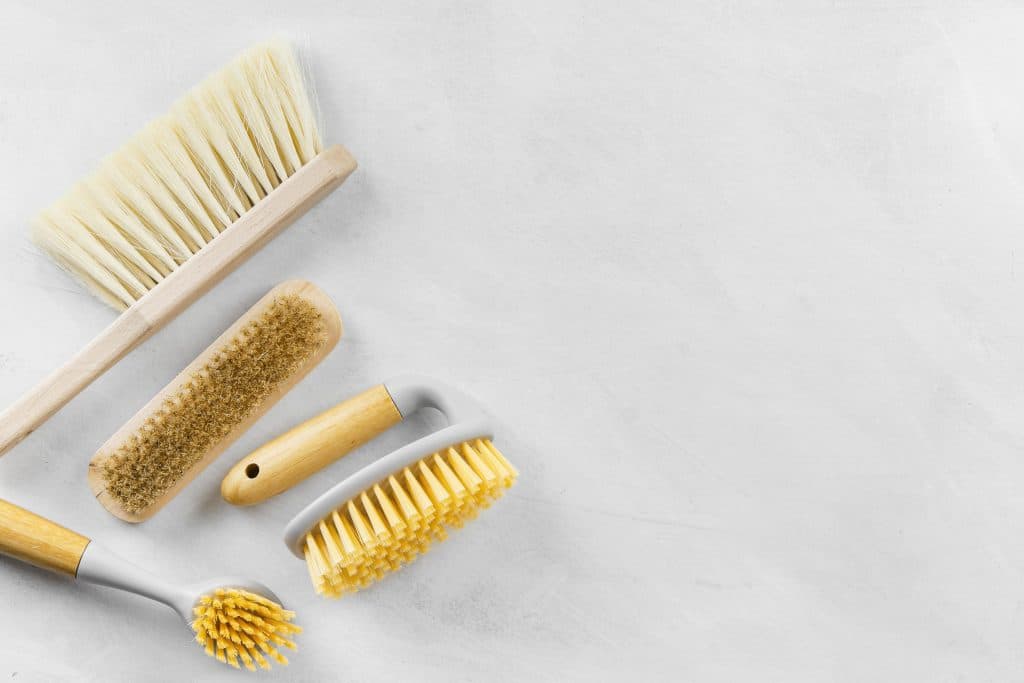
While using vinegar is a sure and simple method, doing it wrong can convince you otherwise. Take a look at some of the most common mistakes people tend to make when it comes to oil stain removing:
- Rushing it by scrubbing too soon can reduce the vinegar’s effectiveness. Give it time to dissolve the oil before starting to scrub it off.
- Cold water can cause the oil to solidify, making it harder to remove. Always use warm water to ensure the oil is fully dissolved and rinsed away.
- Don’t skip the step of applying an absorbent like baking soda or cornstarch. This step is crucial for soaking up excess oil, making the vinegar more effective.
- Avoid using a metal or overly harsh brush, as it can be too hard on your surface. A stiff-bristled brush is strong enough to get rid of the oil stain without causing harm to the pavers’ surface.
As long as you stick to the guide and avoid these mistakes, vinegar will make a great brick paver oil stain remover.
Brick Paver Stain Prevention
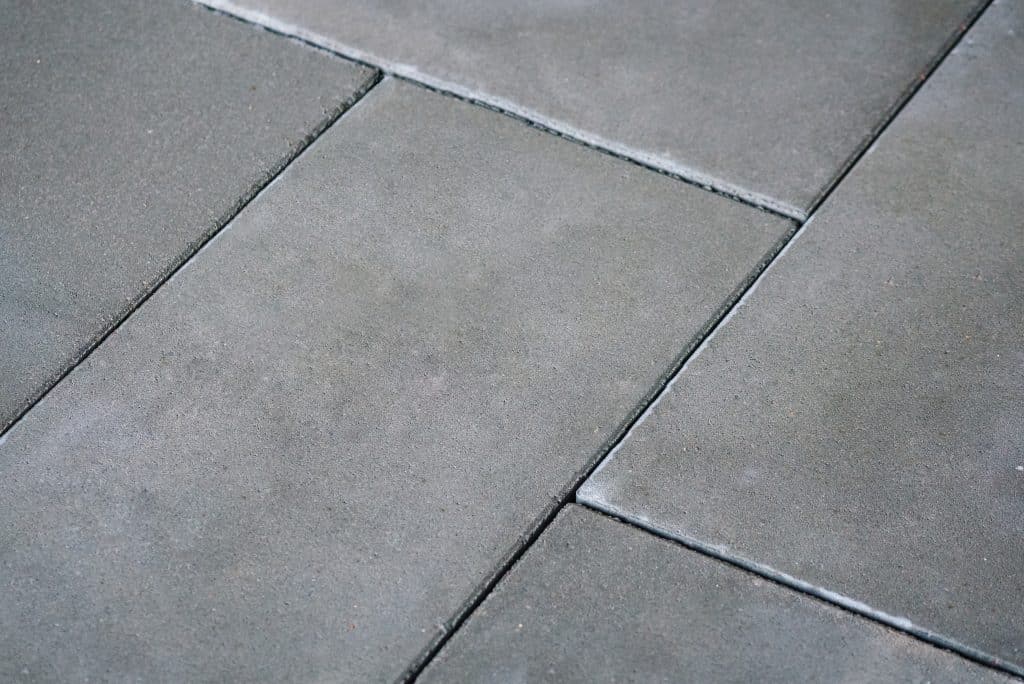
Taking preventive measures always saves you a lot of trouble, and it’s true for oil stains on brick pavers as well. Canceling all the backyard parties you have planned might be taking it a bit too far though when there are much easier preventive methods out there:
- Whether you’re doing all the work yourself or resorting to professional help, applying a high-quality sealant to your brick pavers will create a barrier, making it difficult for oil to penetrate the surface. Sealing your interlock not only helps with damage prevention but also enhances their color and extends their lifespan.
- If you have outdoor cooking areas, consider placing absorbent mats under these areas to catch the drips before they hit the pavers.
- If an oil spill occurs, try to clean it up as soon as possible. The longer oil sets on the pavers, the more it will seep into the material and the harder it will be to remove.
While some of these tips might be bothersome, sealing your interlock is something you do once to save yourself a great deal of trouble in the future.
Alternative Safe Cleaning Methods
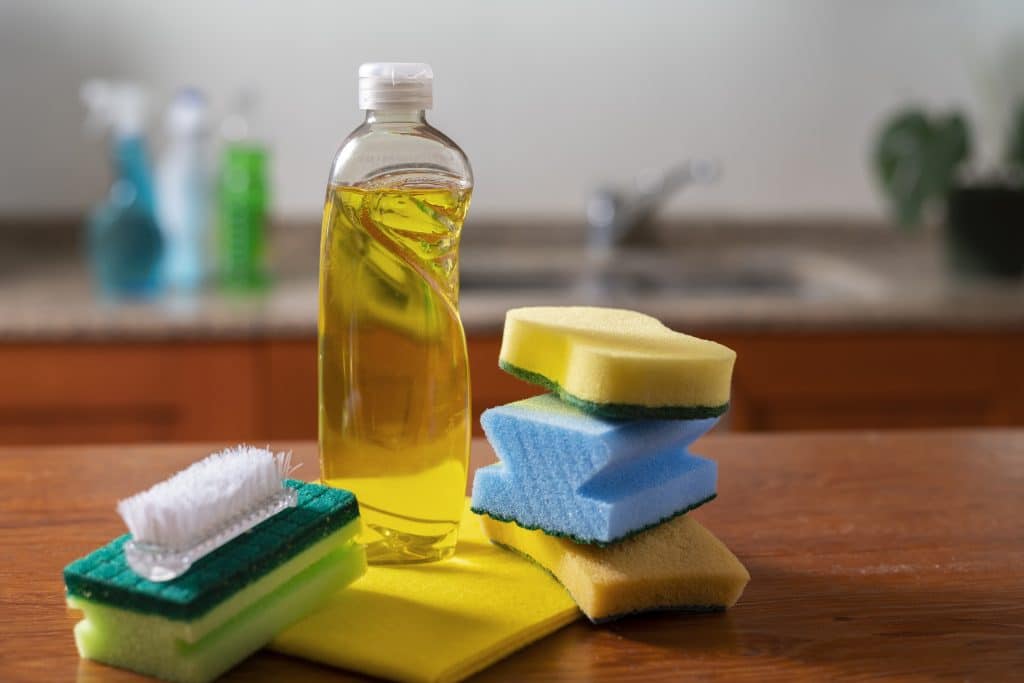
When it comes to cleaning grease, vinegar can be your go-to method, but there are also alternative non-toxic methods worth considering. Baking soda on its own is a natural cleaner with a mild abrasive quality as well, making it gentle on surfaces and safe for the environment. However, it may not be powerful enough to tackle deep-set grease stains.
Dish soap is another common household solution. It’s great for breaking down fresh grease and is safe to use on brick without causing damage. The convenience of having it readily available makes it an attractive option, but it struggles with older stains.
Conclusion
Using vinegar to remove oil stains from brick, though sounds outdated, is still one of the most safe and efficient methods out there. As long as you carefully follow the steps and make sure to avoid common mistakes, the results won’t keep you waiting.
